Submitted by Giuseppe Futia on Tue, 02/19/2013 - 11:18
In questa pagina i guest lecturers del corso, in ordine di apparizione in aula.
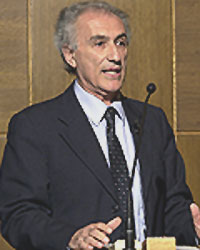
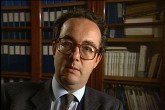
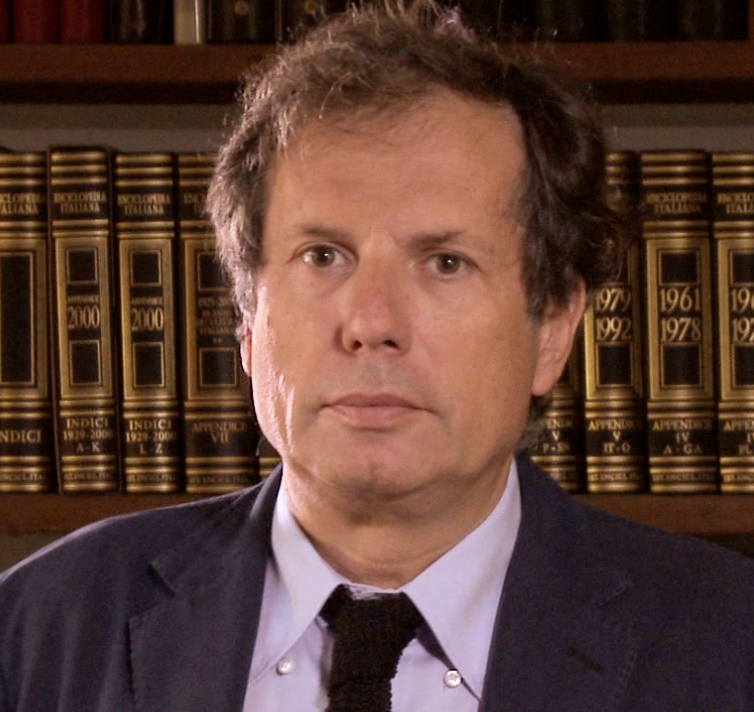

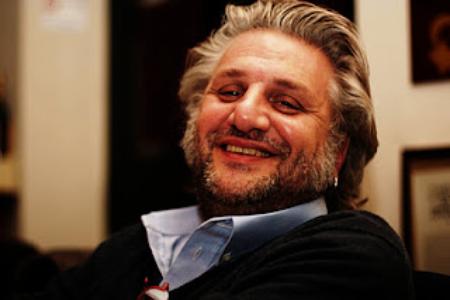
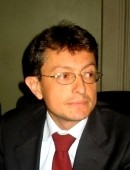
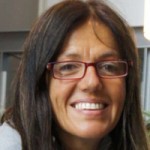

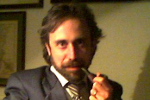
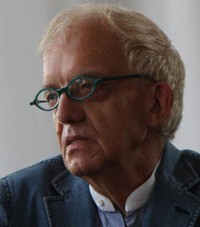
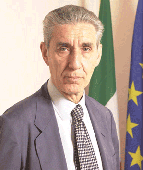
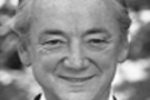

prof. Angelo Raffaele Meo — Politecnico di Torino (Italy)
1961-1969 Assistant Professor of Electrical Engineering at Politecnico di Torino.
1970- Full Professor of Computer Science at Politecnico di Torino.
1970-1999 head of "Centro per l'Elaborazione Numerale dei Segnali" CNR.
1979-1985 director of the "Progetto Finalizzato Informatica", CNR.
1991-1996 scientific director of "Centro di Supercalcolo Piemonte".
He has published more than one hundred papers dealing with computer science. In particular, he investigated switching theory, hardware design, signal processing, speech analysis and synthesis, and pattern recognition.
He has coordinated many academic and industrial national research projects on computer science.
He is president of the Academy of Sciences of Torino.
In 2002 he was called by the Italian Minister of Technology to preside at a Commission entrusted with the task of promoting open source in the Italian Public Administration. E' membro del comitato dei Garanti del Centro Nexa su Internet & Società del Politecnico di Torino.

prof. Marco Ricolfi — Università degli Studi di Torino (Italy)
Prof. Ricolfi, was born on 19.7.1952, received his degree at the Faculty of Law of the University of Turin on 1974. Master of Laws, Yale Law School, 1975-1976. He currently is professor of Intellectual Property Law at Turin Law School, where he also teaches Business Law. He is Director of the LL M in Intellectual Property, organized by Turin Law School together with WIPO and ILO. E' co-direttore del Centro Nexa su Internet & Società del Politecnico di Torino.

prof. Maurizio Ferraris — Università degli Studi di Torino (Italy)
Maurizio Ferraris è professore ordinario di Filosofia teoretica nella Università di Torino, dove dirige il LabOnt (Laboratorio di ontologia). È editorialista di “La Repubblica”, direttore della “Rivista di Estetica” e condirettore di “Critique” e della “Revue francophone d’esthétique”. Fellow della Italian Academy for Advanced Studies in America e della Alexander von Humboldt Stiftung, Directeur d’études al Collège International de Philosophie, visiting professor alla Ecole des Hautes Etudes en Sciences Sociales di Parigi e in altre università europee e americane, ha scritto oltre quaranta di libri tradotti in varie lingue, tra cui Storia dell’ermeneutica (1988), Estetica razionale (1997), Dove sei? Ontologia del telefonino (2005, Premio filosofico Castiglioncello) e Documentalità. Perché è necessario lasciar tracce (2009). Alla sua carriera è stato conferito nel 2008 il Premio Filosofico “Viaggio a Siracusa”. I suoi ultimi libri sono Anima e iPad (Guanda 2011) e Manifesto del nuovo realismo (Laterza 2012).

dott. Stefano Quintarelli — Imprenditore e blogger (Italy)
Stefano Quintarelli is a serial entrepreneur (and prolific blogger), who pioneered the commercial development of internet in Italy.
He graduated in IT science at the University of Milan. In 1989 he founded MI.NE.R.S. (Milano Network Researchers and Students), the student telecom association that developed the first e-mail independent system in Italy.
In 1994, he was one of the founder of I.NET, the first commercial ISP in Italy for professionals, that hosted the Milan Internet Exchange (MIX), the first and most important exchange point of ISP traffic in Italy, he also contributed to the birth of AIIP the Italian association of Internet Providers.
He was one of the founding members of: CLUSIT, Italian association for IT security; AIPSI, Italian association of professionals of IT security (Italian division of ISSA.org); Equiliber, Association for balanced information on technology innovation; VoIPex, consortium for interoperability, quality and transparency of IP services.
He has been a supporter of civic IT backing the first civic networks in Italy (e.g. RCM the civic network of Milan and ONDE - Online Desenzano). He promoted the birth of DMIN.IT, the forum on digital media development in Italy, coordinated by Leonardo Chiariglione (the president of MPEG).
He is a supporter of network neutrality and knowledge sharing and he sustained since the beginning the activities of "Condividi la Conoscenza", the conferences organized by sen. Fiorello Cortiana and in 2005 he introduced in Italy the network neutrality topic in a congress with Lawrence Lessig and in other occasions.
He is author of many books and papers on Internet published on the most important Italian newspapers and he is scientific coordinator of updating workshops on technological topics for the Italian finance community.
He chaired the Italian ISP association (AIIP) till January 2007, he is a member of the Programming committee of Federcomin (innovation services of the Italian federation of industry)
He has been awarded by "Corriere della Sera-Economia" as one of the 30 most innovative Italian entrepreneurs. E' membro del comitato dei Garanti del Centro Nexa su Internet & Società del Politecnico di Torino.

dott. Marco Zamperini — CIO at Value Team S.p.A.
Chief Innovation Officer of Value Team S.p.A. , proud father of two beatiful girls, a professor, a technology evangelist, an holistic thinker and a gentleman.

prof. Mario Calderini — Politecnico di Torino (Italy)
Mario has a PhD in Economics from the University of Manchester and he has a BSc and an MSc in mechanical engineering from Politecnico di Torino.
He teaches Management of Innovation and Technology Strategy at undergraduate, master and postgraduate level and in the Alta Scuola Politecnica. Mario sits in the scientific committee of the PhD program in "Economics and Management of Technology" at Politecnico di Torino and University of Bergamo and of the PhD program in "Economics of Institutions and Creativity" at University of Torino. His main research interest is in the Economics and Management of Innovation. His numerous publications in international journals cover research and innovation management issues, technology policies and empirical studies on the determinants of innovative activity. He has been involved in several research projects and his research has attracted funds and sponsorships to Politecnico di Torino from several Institutions such as the European Commission, the Italian Ministry for Research, the Italian Ministry of Industry, the Italian Authority for Communications and several research foundations, private consultancy companies, banks and industry associations. Mario Calderini is the delegate for Public Policies of the Fondazione COTEC per l’Innovazione Tecnologica, under the Honorary Presidency of Giorgio Napolitano, President of the Italian Republic. He is the co-director of Fondazione Rosselli’s Laboratorio di Economia dell’Innovazione "Franco Momigliano" and has a permanent cooperation with Fondazione Giovanni Agnelli. He is currently a member of the Intellectual Property Rights Commission at Politecnico di Torino and a member of the Dean’s board for Politecnico’s Fourth Faculty of Management. Mario Calderini is also a member of the Scientific Committee of "Quaestio", the Lombardy Region System for Research and Technology Transfer Centres Evaluation, and sits in the permanent product liability working group established by the European Community in order to monitor the impact of Directive 85/374/CE on liability for defective products. In 2005 he joined the expert group of the United Nations Conference on Trade and Development (UNCTAD) with the task of peer reviewing the UN’s World Investment Report 2005. In 2006 he was nominated by the Italian Delegation as an expert to the Administrative Council of the European Patent Office (EPO). In the recent past, he was a member of the National Physics of the Matter Institute International Evaluation Panel and the national representative in the European Commission's Board for Regional Technology Advisor Centre. E' membro del comitato dei Garanti del Centro Nexa su Internet & Società del Politecnico di Torino.

dott. Anna Masera — La Stampa (Italy)
Anna Masera, nata a Milano il 19 gennaio, laureata in Storia alla
Yale University nell'83, un Master in giornalismo
alla Columbia University nell'84, giornalista
professionista dal 1986, prima al quotidiano Italia
Oggi, passata all'agenzia Reuters e
poi in Mondadori: dal mensile Fortune
Italia al mensile Espansione con una
collaborazione per una rubrica di economia a Donna
Modernae come corrispondente dall'Italia
per Advertising Age.
Dopo 6 mesi come consulente Rai per il talk-show "Milano, Italia", approdata al settimanale Panorama nella sezione costume e società, nel 1994, all'alba di Internet.
Da allora segue gli sviluppi dei nuovi media: dopo aver co-fondato il sito e il periodico Panorama Web, è stata assunta a Torino a La Stampa alla fine del '99 per lanciare il sito www.lastampa.it di cui è caporedattore.
Dal febbraio 2012 è Social Media Editor, la prima di un grande giornale italiano.
Ha collaborato online anche sul Guardian.
E' membro del Comitato dei Garanti del Centro di ricerche Nexa per Internet e Società.
su Twitter: @annamasera
Dopo 6 mesi come consulente Rai per il talk-show "Milano, Italia", approdata al settimanale Panorama nella sezione costume e società, nel 1994, all'alba di Internet.
Da allora segue gli sviluppi dei nuovi media: dopo aver co-fondato il sito e il periodico Panorama Web, è stata assunta a Torino a La Stampa alla fine del '99 per lanciare il sito www.lastampa.it di cui è caporedattore.
Dal febbraio 2012 è Social Media Editor, la prima di un grande giornale italiano.
Ha collaborato online anche sul Guardian.
E' membro del Comitato dei Garanti del Centro di ricerche Nexa per Internet e Società.
su Twitter: @annamasera

dott. Luca De Biase — "Nova", Il Sole 24 Ore (Italy)
Luca De Biase is a journalist and writer. He is the founder and chief editor of Nòva, the science and technology crossplatform section at Il Sole 24 Ore. He is the president of Fondazione Ahref, which is meant to research and help improve the information ecosystem emerging in the social media. He is author of "Economia della felicità", "Il mago d'ebiz" and "In nome del popolo mondiale". He blogs at blog.debiase.com and lucadebiase.nova100.ilsole24ore.com. He edited with Giorgio Meletti "Bidone.com". He contributed to the project and implementation of various initiatives, such as Skillpass, ScienceXpress, I nonni raccontano, EquiLiber, Reporters Online. He teaches Journalism and social media at Iulm in Milan. He teaches Social media and international policy at Sciences Po, Paris. E' membro del comitato dei Garanti del Centro Nexa su Internet & Società del Politecnico di Torino.

Avv. Carlo Blengino — Studio Legale Catalano Penalisti Associati Carlo Blengino lives in Turin and is a lawyer and a partner of the legal firm “Studio Legale Catalano Penalisti Associati”. He deals exclusively with criminal law cases, with special reference to culpable crimes, professional liabilities, economics criminal laws, intellectual property rights, crimes involved with IT and new technologies, defense of privacy and personal data. Since the early nineties, he has debated in law courts the main issues of copyright, from CDs rental to campaigns for file sharing (among his many defenses, the one in the well-known sentence on downloading -Cass.149/07- and the defense of many users in the Peppermint case). He thus gained a concrete experience of sanctions in the area of copyright law. He is a member of the IT Commission within the Bar Council of Turin. He contributes to several on-line magazines, to the magazine “Diritto dell’Informazione e dell’Informatica” of the Calamandrei Foundation and his works are published by Giappichelli Editore, UTET Giuridica and EGEA. He is a fellow of Nexa Center for Internet & Society of Turin Polytechnic.

prof. Carlo Olmo — Politecnico di Torino (Italy)
Carlo Olmo, storico dell’architettura, è stato preside della Facoltà di Architettura del Politecnico di Torino dal 2000 al 2007. Ha insegnato all’École des Hautes Etudes en Sciences Sociales di Parigi e al Mit di Boston. Direttore del Dizionario dell’architettura del XX secolo e de «Il Giornale dell’Architettura», è autore tra l’altro di Alle radici dell’architettura contemporanea (Einaudi, 1989; con R. Gabetti) e di La città e le sue storie (Einaudi, 1995; con B. Lepetit).

prof. Stefano Rodotà — Università La Sapienza di Roma (Italy)
Prof. Stefano Rodotà: Professor of Civil Law, University of Rome; Chairman of the Italian Data Protection Authority; former Chairman of the European Group of the Data Protection Authorities Chairman of the Commission on Genetic Testing and Counselling; Member of the European Group on Ethics in science and technologies, Member of the Convention drafting the Charter of Fundamental Rights of the European Union (2000); Former Member of the HUGO Ethics Committee (1997-2000); Member of the Ethics Committee of the National Research Council; Work in the field of the legal and social effects of scientific innovation (1972-2000); Important work in the field of bioethics (1989-2000); Author of several books and editor of a number of periodicals; Member of the Italian Parliament (1979-1994); Vice-President of the Chamber of Deputies (1992); Member of the Parliamentary Assembly of the Council of Europe (1983-1994); Member of the European Commission's Group of Advisers on the Ethical Implications of Biotechnology (1994-1997); Member of the European Group on Ethics (since 1998); Chairman of the European Group of Authorities for the Protection of Privacy (1999-2000). E' membro del comitato dei Garanti del Centro Nexa su Internet & Società del Politecnico di Torino.

prof. Charles Nesson — Harvard University (USA)
Charles Rothwell Nesson is the William F. Weld Professor of Law at Harvard Law School and the founder of the Berkman Center for Internet & Society and of the Global Poker Strategic Thinking Society. He is author of Evidence, with Murray and Green, and has participated in several cases before the U.S. Supreme Court, including Daubert v. Merrell Dow Pharmaceuticals. In 1971, Nesson defended Daniel Ellsberg in the Pentagon Papers case. He was co-counsel for the plaintiffs in the case against W.R. Grace that was made into the film A Civil Action.
Nesson attended Harvard College as an undergraduate, and then Harvard Law School where he joined the list of only a handful of people in history to have graduated summa cum laude. Nesson was a law clerk to Justice John Marshall Harlan II on the United States Supreme Court, 1965 term. He then worked as a special assistant in the Department of Justice Civil Rights Division. His first case, White v. Crook, made race and gender-based jury selection in Alabama unconstitutional. Nesson joined the Harvard Law School faculty in 1966, and was tenured in 1969.
He is "currently leading a project to reify university as a meta player in cyberspace, to legitimize and teach poker and the value of strategic poker thinking, and to advance restorative justice in Jamaica". In 2006 he taught CyberOne: Law in the Court of Public Opinion with Rebecca Nesson and Gene Koo. He teaches courses in the law and practice of Evidence (how to prove the "truth"), Trials in Second Life, and a reading group with Fern Nesson on Freedom. E' membro del comitato dei Garanti del Centro Nexa su Internet & Società del Politecnico di Torino.

